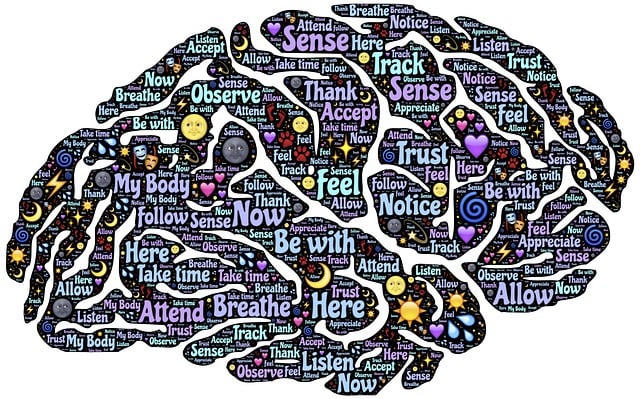Crisis Intervention Teams (CITs) at Littleton Young Adults Therapy offer specialized support for young adults facing mental health crises, combining evidence-based practices with creative training methods. The program equips participants with skills like mind over matter principles and risk management tools, fostering resilience and swift crisis resolution. Through comprehensive training, simulations, and advocacy, LYAT enhances public awareness, reduces stigma, and empowers trainees to prevent future crises through systemic change.
Crisis intervention teams play a crucial role in supporting young adults during mental health crises. This article explores the significance of specialized training programs designed to equip professionals with effective crisis response strategies. We delve into how these programs, like the innovative practices employed by Littleton Young Adults Therapy, foster compassionate and competent care. By understanding the needs of this vulnerable population, we can ensure better outcomes and a more responsive support system for young adults in crisis.
- Understanding Crisis Intervention Teams: A Vital Resource for Young Adults
- The Role of Training Programs in Effective Crisis Response
- Littleton Young Adults Therapy: A Case Study on Innovative Training Methods
Understanding Crisis Intervention Teams: A Vital Resource for Young Adults

Crisis Intervention Teams (CITs) are specialized groups designed to provide immediate support and guidance during mental health crises. For young adults, who often face unique challenges like academic pressures, social stressors, and identity formation, having access to CITs can be a game-changer. These teams, typically consisting of trained professionals, offer a vital resource for Littleton Young Adults Therapy, focusing on swift intervention and effective communication strategies.
The role of CITs is crucial in promoting mental well-being by teaching young adults valuable mind over matter principles and equipping them with tools to manage risks effectively. Through comprehensive training programs, mental health professionals can learn risk management planning techniques, enabling them to respond promptly and efficiently during a crisis. This proactive approach ensures that young individuals receive the necessary support to navigate their challenges and develop resilience.
The Role of Training Programs in Effective Crisis Response

Effective crisis intervention relies heavily on well-structured training programs designed to equip professionals and volunteers with the necessary skills. These programs play a pivotal role in fostering swift and compassionate responses during critical situations, especially when dealing with mental illness and emotional crises among young adults, as exemplified by Littleton Young Adults Therapy. Through rigorous training, individuals learn to navigate complex scenarios, providing immediate support while ensuring long-term well-being.
The curriculum often incorporates various techniques, including compassion cultivation practices, designed to enhance empathy and reduce the Mental Illness Stigma Reduction Efforts. By engaging in realistic simulations and role-playing exercises, participants develop a deeper understanding of different crisis contexts. Moreover, these training programs contribute to the broader goal of increasing public awareness campaigns development, ensuring that more people are equipped to recognize and respond to crises effectively, ultimately leading to better outcomes for those in need.
Littleton Young Adults Therapy: A Case Study on Innovative Training Methods

The Littleton Young Adults Therapy (LYAT) program stands as a shining example of innovative crisis intervention team training. This unique approach focuses on preparing young adults to handle mental health crises effectively, using a blend of evidence-based practices and creative methodologies. LYAT goes beyond traditional training by integrating Mental Health Policy Analysis and Advocacy into its curriculum, empowering participants to not only react to but also prevent future crises through systemic change.
The program prioritizes the development of coping skills and empathy building strategies, ensuring that trainees are equipped with both technical knowledge and emotional intelligence. Through role-playing scenarios, group discussions, and real-life case studies, LYAT fosters a deep understanding of young adults’ mental health challenges. This immersive training enables participants to build strong, empathetic connections, crucial for effective crisis intervention.
Crisis intervention team training programs, such as those exemplified by Littleton Young Adults Therapy, play a pivotal role in enhancing community support for young adults during crises. These innovative methods ensure that teams are equipped with the necessary skills to provide immediate and effective assistance. By prioritizing comprehensive training, we can improve crisis response times and outcomes, ultimately fostering healthier and more resilient communities. The case study of Littleton Young Adults Therapy serves as a compelling example of how tailored, cutting-edge training can revolutionize crisis intervention services.














